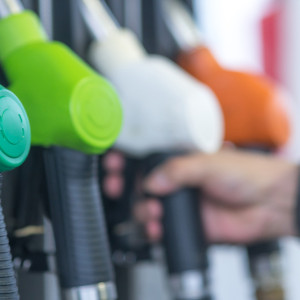Fuel Duty Increase Would be a Roadblock for the Economy


Fuel duty increase, The logistics industry, which delivers all the goods that the economy relies upon to operate, is today (21 July) urging Chancellor Rachel Reeves to avoid hiking fuel duty in her Autumn Statement. As Kevin Green, policy director at business group Logistics UK, explains, until alternative fuels are widely available and used across the industry, any increase in fuel prices would act as a brake on the sector's potential to power growth and could have an inflationary impact right across the economy: "The most effective way this government could support our industry and help it to drive economic growth in the coming year is to not just avoid a rise in fuel duty, but to actually cut it. Logistics businesses ensure our shops, businesses, hospitals and homes are supplied with the goods they need.
Increasing the duty payable on fuel, with no viable business alternative currently available, would not just hit our industry at a time when many businesses are struggling as a result of increased costs, but also mean an inflationary knock-on effect to consumers, who would receive a double whammy of increased prices in the shops as well as at the pumps. "Rather than raising fuel duty increase, which would block off the growth our members could drive, we recommend Ms Reeves actually cuts it to kickstart increased economic activity and fuel growth across all sectors. With business uncertainty still high, a bold move is needed to support our members and ensure they can deliver confidently for customers and consumers."
According to Logistics UK, a 10p per litre cut in fuel duty will reduce fuel costs across the country by almost GBP5 billion* a year for both industry and consumers, which will allow businesses to invest and help drive growth. It would also help grow the economy through increases in consumer spending, putting money in the pockets of people up and down the country. "We are operating in sluggish times," continues Mr Green, "growth is now predicted to be 1.1% during 2025 and our Logistics Report shows that overall business confidence has declined compared to previous years.
In this environment, we need a brave and confident government to take the steps needed to jump start the economy. A significant cut to fuel duty will free up levels of cash which can then be used to invest in the key areas that help keep the country trading - a move that would give the whole country the boost it needs to kickstart the economy." Logistics UK's annual Logistics Report 2025 shows that fuel duty generates GBP24.3 billion for the Exchequer with the logistics sector contributing GBP5.43 billion of this total.
Fuel is a significant expense for logistics businesses, representing one third of the industry's costs. Over 60% of respondent businesses surveyed for the report identified a reduction in fuel duty as the clear policy action they would like the government to take to help drive investment and growth. Logistics UK is one of the UK's biggest business groups, representing logistics businesses which are vital to keeping the UK trading, and more than seven million people directly employed in the making, selling and moving of goods.
With decarbonisation, Brexit, new technology and other disruptive forces driving change in the way goods move across borders and through the supply chain, logistics has never been more important to UK plc.
Logistics UK supports, shapes and stands up for safe and efficient logistics, and is the only business group which represents the whole industry, with members from the road, rail, water and air industries, as well as the buyers of freight services such as retailers and manufacturers whose businesses depend on the efficient movement of goods.
For more information about the organisation and its work, please visit logistics.org.uk
Transport & Logistics - Driving The Industry Forward